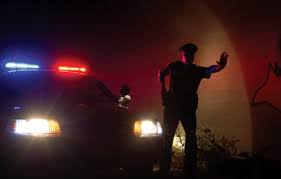
Breaking News
 Quick Take: Gold from lead and ancient alchemy
Quick Take: Gold from lead and ancient alchemy
 HEALTH SECRETS: How to Instantly Block MSG Toxicity Using Natural Substances...
HEALTH SECRETS: How to Instantly Block MSG Toxicity Using Natural Substances...
 STEATOTIC LIVER DISEASE stems from people who scarf down a whole meal in less than 5 minutes...
STEATOTIC LIVER DISEASE stems from people who scarf down a whole meal in less than 5 minutes...
 Newsom to SEIZE MALIBU COAST to build massive 15-minute city after weather weapons destroyed...
Newsom to SEIZE MALIBU COAST to build massive 15-minute city after weather weapons destroyed...
Top Tech News
 Cavorite X7 makes history with first fan-in-wing transition flight
Cavorite X7 makes history with first fan-in-wing transition flight
 Laser-powered fusion experiment more than doubles its power output
Laser-powered fusion experiment more than doubles its power output
 Watch: Jetson's One Aircraft Just Competed in the First eVTOL Race
Watch: Jetson's One Aircraft Just Competed in the First eVTOL Race
 Cab-less truck glider leaps autonomously between road and rail
Cab-less truck glider leaps autonomously between road and rail
 Can Tesla DOJO Chips Pass Nvidia GPUs?
Can Tesla DOJO Chips Pass Nvidia GPUs?
 Iron-fortified lumber could be a greener alternative to steel beams
Iron-fortified lumber could be a greener alternative to steel beams
 One man, 856 venom hits, and the path to a universal snakebite cure
One man, 856 venom hits, and the path to a universal snakebite cure
 Dr. McCullough reveals cancer-fighting drug Big Pharma hopes you never hear about…
Dr. McCullough reveals cancer-fighting drug Big Pharma hopes you never hear about…
 EXCLUSIVE: Raytheon Whistleblower Who Exposed The Neutrino Earthquake Weapon In Antarctica...
EXCLUSIVE: Raytheon Whistleblower Who Exposed The Neutrino Earthquake Weapon In Antarctica...
 Doctors Say Injecting Gold Into Eyeballs Could Restore Lost Vision
Doctors Say Injecting Gold Into Eyeballs Could Restore Lost Vision
Victory! Supreme Court Rules Police No Longer Immune In Escalated Deadly Force Encounters

In a unanimous decision, the U.S. Supreme Court has rejected a legal doctrine that helped shield police from accountability for recklessly escalating confrontations and then using deadly force.
The Supreme Court's ruling in Barnes v. Felix makes clear that when determining whether an officer's use of deadly force was reasonable under the Fourth Amendment, courts must examine the entire sequence of events—not just the split second in which an officer claims to perceive a threat before firing a weapon. The decision strikes down the so-called "moment-of-threat doctrine," which allowed officers to escape scrutiny for their own prior misconduct and reckless provocation. Going forward, judges must weigh all relevant circumstances, including the severity of the alleged offense, the officer's actions leading up to the use of force, and the actual threat posed by the individual. The Rutherford Institute filed an amicus brief urging the Court to overturn the moment-of-threat rule, arguing that it violated longstanding constitutional principles and fostered a culture of impunity among law enforcement.
"For too long, our justice system has enabled a kind of legalized lawlessness, where police are empowered to escalate encounters and then respond with deadly force, knowing the courts will look the other way," said constitutional attorney John W. Whitehead, president of The Rutherford Institute and author of Battlefield America: The War on the American People. "This decision is a powerful counterbalance to the Trump Administration's efforts to shield police from the consequences of unconstitutional behavior. While the executive branch attempts to entrench a culture of impunity, the Supreme Court has hopefully drawn a constitutional line in the sand—one that signals a long-overdue shift in how police can use deadly force."
On April 28, 2016, a police officer in Harris County, Texas, stopped Ashtian Barnes based on a report of unpaid tolls linked to his license plate. When asked for proof of insurance, Barnes explained that the car had been rented a week earlier by his girlfriend and the paperwork might be in the trunk. Claiming to smell marijuana, the officer ordered Barnes to open the trunk and exit the vehicle. Barnes opened his door but also turned the ignition back on. At that point, the officer shouted at Barnes not to move, stepped onto the driver-side doorsill, and shoved his gun into Barnes's head. The car started to move, and the officer fired two shots into the car, killing Barnes. The incident was captured on video. Although Barnes's mother sued, lower courts dismissed the case—ruling that the moment of threat during the two seconds when the officer was standing on the moving vehicle justified deadly force, without considering the officer's role in creating the danger.
The Supreme Court's decision sends the case back to the lower courts for reconsideration under the proper constitutional standard. The Barnes decision comes as the nation reckons with the 30-year legacy of the 1994 Crime Bill, which dramatically expanded the power and protection of law enforcement at the expense of constitutional rights. As The Rutherford Institute has warned, the Crime Bill ushered in an era of "zero tolerance" policing and mass incarceration, laying the groundwork for the militarized and unaccountable police culture we see today. "The Court's decision is an overdue course correction. But it is only a first step," Whitehead said. "Law enforcement should not be allowed to operate beyond the reach of the Constitution."



